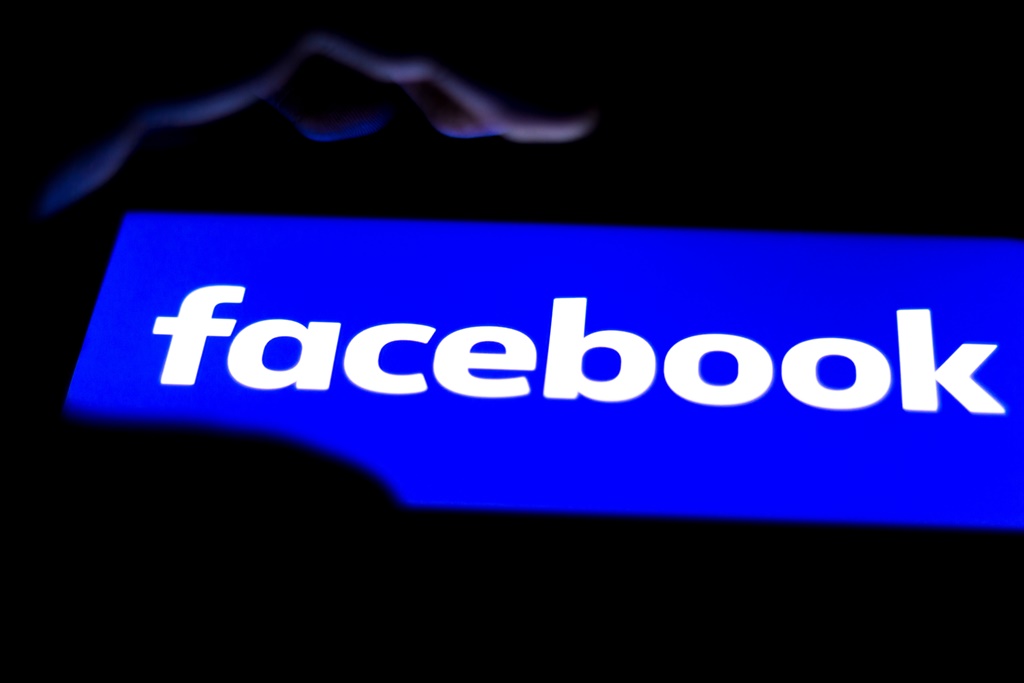
- Facebook is playing a big role in the debate over the the legal immunity contained in Section 230 of the US's Communications Decency Act, in relation to what users post online
- Smaller players like Etsy and Tripadvisor are nervous because they don't have the same content moderation and legal resources as Facebook
- Trump insists the rule should be eliminated altogether, with a vote on the proposal expected to take place in January
Facebook says it’s time to rethink the legal immunity that protects it from lawsuits over what users post online, a position that’s leaving smaller websites concerned about the cost of accepting more responsibility for what appears on their platforms.
The social-media giant has been prominent in the debate in Washington over the liability shield contained in Section 230 of the Communications Decency Act, which may be the subject of a proposal by the U.S. Federal Communications Commission as soon as Wednesday.
Also on Wednesday, President Donald Trump is expected to veto a defense bill in part because lawmakers refused to include a repeal of the protections. Congress is planning to override the veto but lawmakers have said they want to address the liability shield in the coming term.
At the same time, Facebook has been out front on the issue, running ads saying: "We want updated internet regulations to set clear guidelines for addressing today’s toughest challenges".
That’s leaving small and mid-sized companies such as Etsy and Tripadvisor nervous. Facebook can afford elaborate content moderation backed by legions of lawyers if Congress weakens the shield. Not so the smaller companies, they say.
"The Hill is focused on addressing perceived abuses or lapses in responsibility by Big Tech, but one-size-fits-all policy prescriptions may actually embolden those larger platforms at the expense of smaller and mid-sized platforms like Etsy," said Jeffrey Zubricki, director of U.S. government relations at the company.
Etsy and other mid-sized companies on Dec. 15 announced a coalition called Internet Works, formed in recognition that the debate on the liability provision is going to continue into the administration of Democratic President Joe Biden.
There is "a real myopia among legislators of only thinking of Facebook and Google" as they consider bills to address online hosting, said Emma Llanso, director of the Free Expression Project at the Center for Democracy and Technology, a policy group.
"That is a real concern for smaller websites and applications, because they do not have the resources these larger companies do."
The FCC may strike the first blow to Section 230 protections as it proposes a reinterpretation of the rules Trump insists should be eliminated altogether. A vote on the proposal would occur next month, in the waning days of Republican control of the commission.
Tripadvisor, which offers travelers’ reviews of their experiences, told the FCC it needs protections offered by the law in order to ensure the integrity of posts appearing on its website. Almost one in 20 user posts offered in 2018 were rejected for such problems as being irrelevant, biased or fake, the company said.
"Review sites such as Tripadvisor could easily become nothing more than only-positive advertising glimpses" because "hosting critical or negative views would create a substantial risk of legal liability," the company said in a filing.
Speed and Transparency
Etsy works to maintain its status as a marketplace for unique goods. In 2019 it removed or disabled access to more than 470,000 listings from nearly 97,000 sellers who didn’t meet its community standards that call for items to be hand-made, according to the company’s annual transparency report.
The company "will advocate for policies that protect our ability to run an open marketplace and provide economic opportunities to our 3.7 million sellers around the world," Zubricki said in a statement.
Facebook Chief Executive Officer Mark Zuckerberg in October told lawmakers he supports reforms to Section 230, saying that "Congress should update the law to make sure it’s working as intended."
Zuckerberg has called for companies to be regulated on their speed and transparency in taking down illegal content. Conveniently, Facebook already puts out a report on its artificial intelligence takedowns, revealing what percentage of the time the company is able to detect content like hate speech and nudity and remove it before others see it. He said such a report was an example of what all companies could provide.
Google Chief’s Warning
Sundar Pichai, chief executive officer of Google parent Alphabet has warned against changes to the law. In an October appearance before the Senate Commerce, Science and Transportation Committee, Pichai asked lawmakers "to be very thoughtful about any changes to Section 230, and to be very aware of the consequences those changes might have on businesses and customers."
"We all share the same goal: free access to information for everyone, and responsible protections for people and their data,” Pichai said. “We support legal frameworks that achieve these goals."
Jon Berroya, interim president and chief executive officer of the Internet Association, which counts Google and Facebook among its members, said in a statement that the trade group is "committed to working productively with Congress and the Biden administration." Discussion will include "ways to address serious challenges without undermining this important law," Berroya said.
Twitter, which is less wealthy than Facebook or Alphabet, remains wary.
"Unwittingly entrenching the dominant companies through regulation only they can comply with -- and by extension harming American innovation and global competition -- should be avoided at all costs," said Lauren Culbertson, the company’s head of U.S. public policy.
Congress hasn’t coalesced around a single proposal. But lawmakers on both sides of the aisle have increasingly sought changes to the provision.
Democrats emphasize concerns about election misinformation, faulty products, weapons, online scams and other content that gets left up. Both sides have slammed the proliferation of online sex abuse, particularly against children, and drugs.
Republicans suggest that the companies’ ability to remove content enables censorship of conservatives -- something the social media sites say they aren’t doing.
-With assistance from Kurt Wagner and Sarah Frier.




 Publications
Publications
 Partners
Partners












